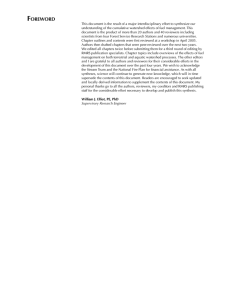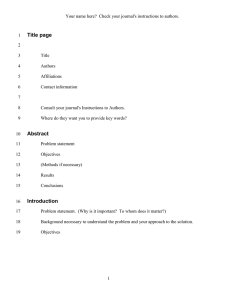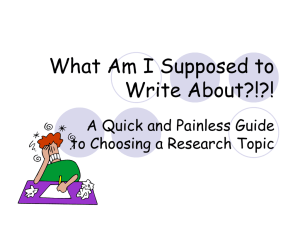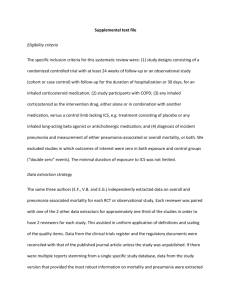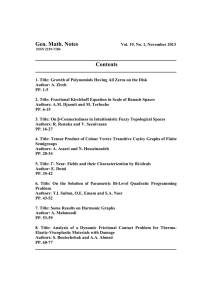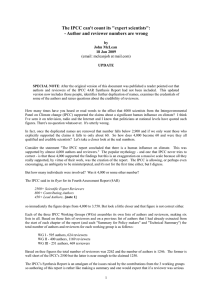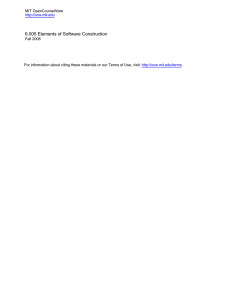Document 11267918
advertisement
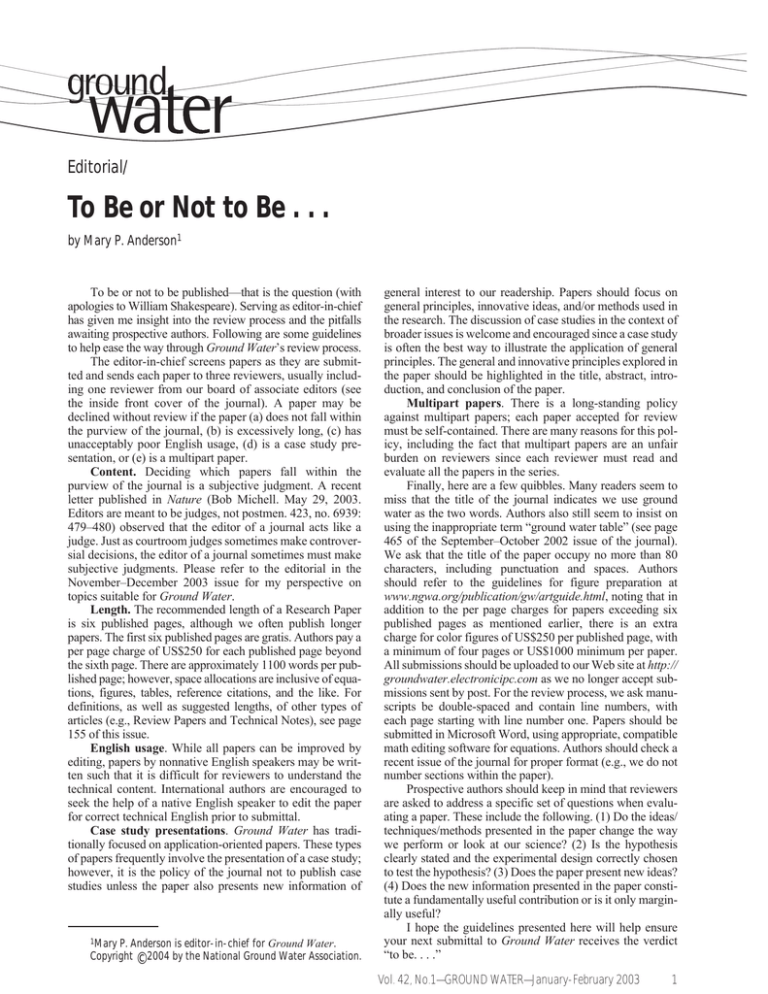
Editorial/ To Be or Not to Be . . . by Mary P. Anderson1 To be or not to be published—that is the question (with apologies to William Shakespeare). Serving as editor-in-chief has given me insight into the review process and the pitfalls awaiting prospective authors. Following are some guidelines to help ease the way through Ground Water’s review process. The editor-in-chief screens papers as they are submitted and sends each paper to three reviewers, usually including one reviewer from our board of associate editors (see the inside front cover of the journal). A paper may be declined without review if the paper (a) does not fall within the purview of the journal, (b) is excessively long, (c) has unacceptably poor English usage, (d) is a case study presentation, or (e) is a multipart paper. Content. Deciding which papers fall within the purview of the journal is a subjective judgment. A recent letter published in Nature (Bob Michell. May 29, 2003. Editors are meant to be judges, not postmen. 423, no. 6939: 479–480) observed that the editor of a journal acts like a judge. Just as courtroom judges sometimes make controversial decisions, the editor of a journal sometimes must make subjective judgments. Please refer to the editorial in the November–December 2003 issue for my perspective on topics suitable for Ground Water. Length. The recommended length of a Research Paper is six published pages, although we often publish longer papers. The first six published pages are gratis. Authors pay a per page charge of US$250 for each published page beyond the sixth page. There are approximately 1100 words per published page; however, space allocations are inclusive of equations, figures, tables, reference citations, and the like. For definitions, as well as suggested lengths, of other types of articles (e.g., Review Papers and Technical Notes), see page 155 of this issue. English usage. While all papers can be improved by editing, papers by nonnative English speakers may be written such that it is difficult for reviewers to understand the technical content. International authors are encouraged to seek the help of a native English speaker to edit the paper for correct technical English prior to submittal. Case study presentations. Ground Water has traditionally focused on application-oriented papers. These types of papers frequently involve the presentation of a case study; however, it is the policy of the journal not to publish case studies unless the paper also presents new information of 1Mary P. Anderson is editor-in-chief for Ground Water. Copyright © 2004 by the National Ground Water Association. general interest to our readership. Papers should focus on general principles, innovative ideas, and/or methods used in the research. The discussion of case studies in the context of broader issues is welcome and encouraged since a case study is often the best way to illustrate the application of general principles. The general and innovative principles explored in the paper should be highlighted in the title, abstract, introduction, and conclusion of the paper. Multipart papers. There is a long-standing policy against multipart papers; each paper accepted for review must be self-contained. There are many reasons for this policy, including the fact that multipart papers are an unfair burden on reviewers since each reviewer must read and evaluate all the papers in the series. Finally, here are a few quibbles. Many readers seem to miss that the title of the journal indicates we use ground water as the two words. Authors also still seem to insist on using the inappropriate term “ground water table” (see page 465 of the September–October 2002 issue of the journal). We ask that the title of the paper occupy no more than 80 characters, including punctuation and spaces. Authors should refer to the guidelines for figure preparation at www.ngwa.org/publication/gw/artguide.html, noting that in addition to the per page charges for papers exceeding six published pages as mentioned earlier, there is an extra charge for color figures of US$250 per published page, with a minimum of four pages or US$1000 minimum per paper. All submissions should be uploaded to our Web site at http:// groundwater.electronicipc.com as we no longer accept submissions sent by post. For the review process, we ask manuscripts be double-spaced and contain line numbers, with each page starting with line number one. Papers should be submitted in Microsoft Word, using appropriate, compatible math editing software for equations. Authors should check a recent issue of the journal for proper format (e.g., we do not number sections within the paper). Prospective authors should keep in mind that reviewers are asked to address a specific set of questions when evaluating a paper. These include the following. (1) Do the ideas/ techniques/methods presented in the paper change the way we perform or look at our science? (2) Is the hypothesis clearly stated and the experimental design correctly chosen to test the hypothesis? (3) Does the paper present new ideas? (4) Does the new information presented in the paper constitute a fundamentally useful contribution or is it only marginally useful? I hope the guidelines presented here will help ensure your next submittal to Ground Water receives the verdict “to be. . . .” Vol. 42, No.1—GROUND WATER—January-February 2003 1
